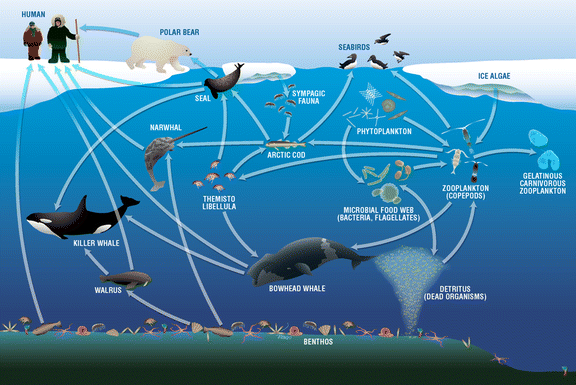A period of uncontrolled growth would be represented by which type of curve?
If you've ever found a tick on your body after going in the woods, you would be considered this ecological term.
What is a host?
What is a pyramid (or triangle)?
The arrows in a food change represent this concept in an ecosystem.
Ecology is the study of ______________ between organisms and their environment.
What are interactions?
What is the general shape of a logistic curve?
What is an S-curve?
Barnacles tend to grow on whales skin and use the movement of the whale to filter feed. The whale is totally unbothered by this while the barnacle benefits. This is an example of what kind of symbiotic relationship?
What is commensalism?
This is the level that organisms can be classified into on an energy pyramid.
What is a trophic level?
Ecologists use this model to represent the many complex feeding relationships that are present in an ecosystem.
What is food web?
What is community?
Why do ecologists use mathmatical models when examining populations?
What is to make predictions about how a population will change over time and respond to different conditions?
Hopefully your friendships follow this type of symbiosis, meaning you both benefit from the relationship.
What is mutualism?
Most energy pyramids begin with this as their original source of energy.
What is the sun?
Autotrophs always occupy this trophic level in a food web.
This describes an organism's specific job or role in an ecosystem.
What is a niche?
Populations eventually reach this when they are affected by limiting factors.
What is carrying capacity?
The relationship between humans and the bacteria that lives in their intestines could be described as this type of symbiotic relationship.
This rule describes the amount of energy that is conserved from trophic level to trophic level.
What is the rule of 10 (or the 10% rule)?
Herbivores always occupy this level in a food web.
What is primary consumer level?
The higher the rate of population growth, the _______ the slope of the line.
What is steeper?
The effect of this limiting factor is directly impacted by how many organisms are living in a given area.
This organism is generally smaller than its host.
There are 6,000 kcal at the tertiary consumer level in an ecosystem. How many kcal could we approximate are at the producer level?

How many food sources does the arctic cod have?
What is 3?
From producer to secondary consumer, about what percentage of energy is lost? (hint- producer level is 100%)
What is 99%?